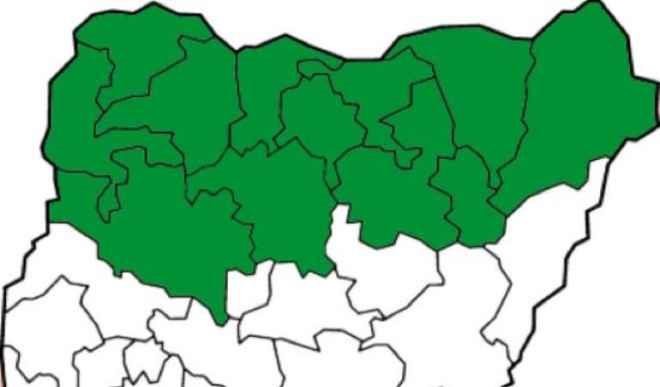Is Hausa popular literature endangered?
In recent years, as English takes over as the official written language in Northern Nigeria, Hausa seems to have received much less support from the ‘core’ Hausa States of the former Northern region (Kano, Katsina, Kaduna and Jigawa) than hitherto. At the same time, its stature seems to have grown in Niger Republic, thanks to […]


In recent years, as English takes over as the official written language in Northern Nigeria, Hausa seems to have received much less support from the ‘core’ Hausa States of the former Northern region (Kano, Katsina, Kaduna and Jigawa) than hitherto. At the same time, its stature seems to have grown in Niger Republic, thanks to local interest and aid from French governmental agencies. An impressive Dictionnaire Francais-Haoussa was published by Editions KARTHALA, Paris (with IFRA, Uni. Ibadan) in 1997, thanks to a subsidy from L’Institut Francais and the French Ministry of Foreign Affairs, while Radio France Internationale (RFI) introduced a daily Hausa programme in 2008. In the same year, the First International Conference on Hausa Literature and Culture was held in Maradi, Niger Republic (August 2008). Even though the Centre for Hausa Cultural Studies in Kano participated in the conference, and Hausa scholars from Kano presented some papers, the fact that Maradi, rather than Kano, was the venue, spoke clearly of the impoverished state of Hausa in Nigeria. It seemed like a case of the tail wagging the dog!
An interesting point for discussion was brought up in a paper delivered at this Conference by Alhaji Sani Yahaya of the Kano State Censorship Board, when he warned against the danger of “vulgar works that would jeopardise the morality of our children.” This criticism was, however, countered by “A professor in the Department of English at Bayero University, Kano, Sa’idu Ahmad Babura, [who] described the action of the Board as unfortunate.”
According to him, the Board was perceived “as an arch-enemy of creative works, fighting authors with the aim of killing Hausa literature completely.”
His stance was backed by two Hausa women: “A writer from Niger Republic, Hajiya Umma, [who] cautioned the board to be careful lest it blocked the spread of Hausa literature all over the world,” and by “Hajiya Hafsat Abdulwahid, [who] asked the Board to focus their attention on those writers who were writing obscene and vulgar books while hiding behind the veil of Islam.” (quotations from Sunday Trust, 30 November 2008).
This debate was taken up by Carmen McCain, in her article “Book Burning, Education and Hausa ‘romance’ Novels”, published by the Weekly Trust (Abuja) on 19th and 26th July 2014. Her essay can be seen as a plea for tolerance and an acceptance of the need for a ‘popular literature’ in Hausa. Her report of the public burning of popular ‘romance’ (soyayya) novels, by such a prominent figure as then Kano State Commisioner of Education, surely merits questioning and debate.
I have not read any of these novels and so am not in a position to comment on them; but I do question the use of the term ‘pornographic’ to describe ‘romance fiction’ – a genre which, like the TV ‘soap operas’, usually chronicles the agony and the ecstasy of relationships and appeals to the audience’s emotions and feelings, rather than to titillate sexually.
The novels of my Irish compatriot, Maeve Binchy, come under this category of popular literature; but how could anyone in their right mind describe them as pornography, much less burn them in public!
The point is well made by Ms. McCain, who picked out Alhaki Kwikwiyo Ne by Balaraba Ramat Yakubu as a good example of what is being produced in Hausa popular literature today: it has been translated and published in English. Every language has the need for a popular literature of this nature, and this is especially true in the case of Hausa which, as explained above, is losing out to English in many other important fields.
Novels of a romantic and human nature should not be excluded from any language: they are an expression of the human experience, of how from the beginning God created us “in his image; male and female he created them” (Genesis 1:27). There is an innate attraction between the genders, and this is a God-given gift.
The Song of Solomon in the Old Testament is a collection of love poems, beautiful expressions of human love at its best. And as Pope Benedict explained in his encyclical letter Deus Caritas Est (God is love) in 2006, in the section ‘Eros and Agapė – difference and unity’ [Par. 3 -8], there is a place for Eros (self-centred erotic love) leading to Agapé (self-sacrificing outward love) in humankind.
With the growth of English (often ‘broken’ or, worse still, the pidgin of parts of Southern Nigeria) among today’s youth in the North of Nigeria-to the detriment of Hausa, a ban on romantic novels-which appeal to the emotions, would only lead to further erosion and decline in written Hausa. Popular literature needs, rather, to be encouraged and improved on, availing of all the means of promotion used in other languages. So how about, for a start, an annual award, the equivalent of the Booker Prize, for novels (romantic or otherwise) in Hausa !
Rev. Fr Hickey, OSA, is an Irish Catholic priest who has been in Nigeria since 1960. He is currently attached to St. Monica Catholic Church, Rantya, Jos.
